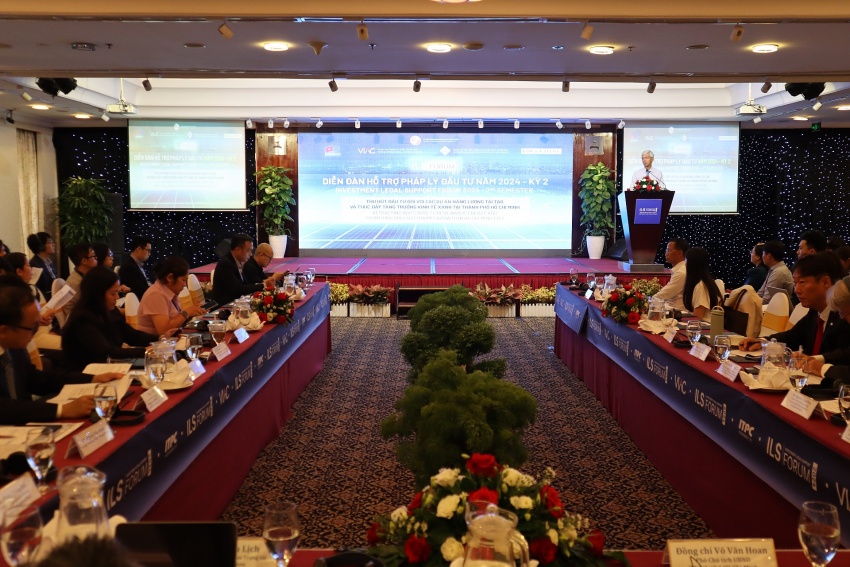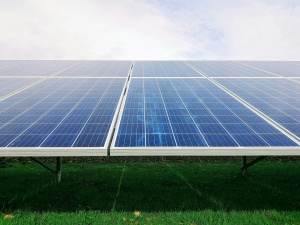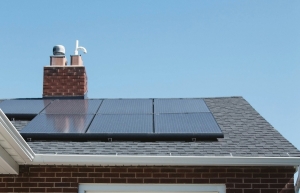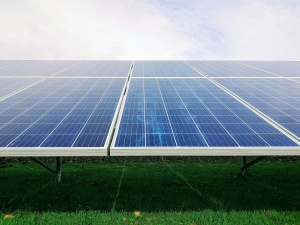Ho Chi Minh City embraces solar energy amid tough environment
At the 2024 Investment Legal Support Forum in Ho Chi Minh City on September 20, Nguyen Xuan Thang, vice president of the European Business Association in Vietnam, said he appreciated the development of solar energy as well as the city's efforts to promote green investment, but the there were several issues to be tackled.
 |
| The 2024 Investment Legal Support Forum taking place in Ho Chi Minh City on September 20 discussing solutions to develop solar energy in Vietnam |
One of the difficulties Thang mentioned was the long time it takes to develop instructions for implementing solar power projects, with most regulations are still in the drafting process.
“This causes a deadlock for investors operating a solar energy project, and it creates hesitation for investors who want to deploy new projects. In addition, Resolution No.98/2023/QH15, limits the responsibility for allocating the city budget and installing solar power systems on public buildings to the people's committee, which limits private sector participation," he said. “Removing these limitations will not only promote wider adoption of solar energy but also reduce the financial and administrative burden on the city government.”
To solve these challenges, Thang cited a number of models in successful international solar energy development in countries around the world, such as Singapore and India.
Nguyen Duc Minh, senior lawyer of Kim & Chang Law (Vietnam), presented a report on applying legal regulations on investment in renewable energy projects in Ho Chi Minh city.
Minh analysed current regulations and pointed out limitations in the legal framework, including the necessity for a separate law regulating the field of renewable energy.
“Currently, electricity purchase contracts must use templates and limited agreements between the parties. Thus, it is possible that the interests of the parties are not in a completely balanced position," Minh said.
Thus, Ho Chi Minh City, with support from Resolution 98, which grants special policies for the development of Ho Chi Minh City, needs to take more drastic steps to take advantage of special mechanisms.
Nguyen Thi Kim Ngoc, deputy director of Ho Chi Minh City Department of Industry and Trade, has revealed the problems the city is facing when developing green projects.
“Being a big special urban area, Ho Chi Minh is a densely populated place, which means that the city's energy consumption needs are also high," Ngoc said.
However, with its geographical location, Ho Chi Minh City does not yet have the strength to develop many types of other energy.
Recognising the limitations of the available land and taking advantage of the strengths and specific mechanisms of Resolution 98, Ho Chi Minh City plans to develop rooftop solar power and electric power from solid waste.
Ngoc also said that converting energy sources with high carbon emissions to renewable energy sources brought investment opportunities for energy developers and ensured that the city could achieve its sustainable target.
Renewable energy is important for the development of a modern urban area like the Ho Chi Minh City.
“This is not only an urgent requirement to meet energy needs in economic development and daily life but also an opportunity to build a smart, green and sustainable city,” Ngoc said.
According to Vo Van Hoan, Vice Chairman of Ho Chi Minh City People's Committee, the city has drafted the Green Growth Action Plan for 2024-2030 to implement the national Green Growth Strategy to achieve sustainable development.
"Accordingly, the city identified 14 main task groups that emphasise "green" elements in development, notably emphasising the importance of renewable energy projects," Hoan said.
Dr. Tran Du Lich, vice chairman of the Vietnam International Arbitration Centre, said that promoting the development of renewable energy, especially wind, solar, and biomass energy, not only helped cope with harmful effects on the environment, but also created benefits for localities and countries in global greening.
So far, "greening" and "renewable energy" are still phrases that are not familiar to businesses, while the regulatory framework in Vietnam is incomplete.
"This leads to obstacles for both enterprises and authorities. The lack of regulations and instructions also increases the risk of disputes arising, leaving investors and the government concerned," Lich said.
 | MoIT advises caution over residential solar systems The Ministry of Industry and Trade (MoIT) is advocating a conservative approach to residential solar installations as it warns of potential grid instability and increased operational costs, particularly for grid-connected systems, as part of the latest regulatory framework. |
 | Vietnam authorises DPPA for rooftop solar and biomass projects A recently issued government decree permits rooftop solar, waste-to-energy, and biomass projects to engage in direct power purchase agreements (DPPA) without routing through Vietnam Electricity (EVN). |
 | Excess rooftop solar power sales capped at 10 per cent of capacity Deputy Prime Minister Tran Hong Ha instructed the Ministry of Industry and Trade (MoIT) on July 10 to present a plan that will enable households to sell excess rooftop solar power, capped at 10 per cent of their total capacity. |
 | Vietnam considers differential solar rates for north The Ministry of Industry and Trade is to assess the feasibility of raising the purchase rate for excess electricity to 20 per cent in the northern region - double that proposed for the rest of the country. |
What the stars mean:
★ Poor ★ ★ Promising ★★★ Good ★★★★ Very good ★★★★★ Exceptional
Related Contents
Latest News
More News
- Trung Nam-Sideros River consortium wins bid for LNG venture (January 30, 2026 | 11:16)
- Vietnam moves towards market-based fuel management with E10 rollout (January 30, 2026 | 11:10)
- Envision Energy, REE Group partner on 128MW wind projects (January 30, 2026 | 10:58)
- Vingroup consults on carbon credits for electric vehicle charging network (January 28, 2026 | 11:04)
- Bac Ai Pumped Storage Hydropower Plant to enter peak construction phase (January 27, 2026 | 08:00)
- ASEAN could scale up sustainable aviation fuel by 2050 (January 24, 2026 | 10:19)
- 64,000 hectares of sea allocated for offshore wind surveys (January 22, 2026 | 20:23)
- EVN secures financing for Quang Trach II LNG power plant (January 17, 2026 | 15:55)
- PC1 teams up with DENZAI on regional wind projects (January 16, 2026 | 21:18)
- Innovation and ESG practices drive green transition in the digital era (January 16, 2026 | 16:51)

 Tag:
Tag:




















 Mobile Version
Mobile Version